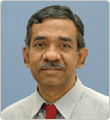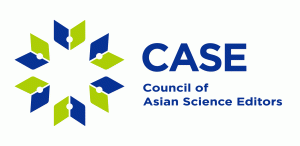Council of Asian Science Editors
- About CASE
- Resources
- Events
- The 8th Asian Science Editors’ Conference and Workshop 2024
- The CASE Webinar: Peer Review for Open Science
- The 7th Asian Science Editors’ Conference and Workshop 2022
- The 6th Asian Science Editors’ Conference and Workshop 2020
- The 5th Asian Science Editors’ Conference and Workshop 2018
- The 4th Asian Science Editors’ Conference and Workshop 2017
- The 3rd Asian Science Editors’ Conference and Workshop 2016
- The 2nd Asian Science Editors’ Conference and Workshop 2015
- Asian Science Editors’ Conference and Workshop 2014
- Membership
- Notices
- Announcement
- Photo gallery
- Asian Science Editors’ Conference and Workshop 2014
- The 2nd Asian Science Editors’ Conference and Workshop 2015
- The 3rd Asian Science Editors’ Conference and Workshop 2016
- The 4th Asian Science Editor’s Conference and Workshop 2017
- Joint Convention of the Asia Pacific Association of Medical Journal Editors and the 5th Asian Science Editors Conference & Workshop 2018
- The 6th Asian Science Editors Conference and Workshop 2020
- The 7th Asian Science Editors’ Conference & Workshop 2022
- Related link
Address by CASE President

President of CASE, R. Subramaniam
Nanyang Technological University, Singapore
The scientific journal is a great platform for disseminating research findings to the scholarly community as well as building a wide ecosystem that supports researchers’ efforts. This ecosystem is composed of, for example, editorial boards enabling academics to be involved in service to the community, reviewers to scrutinize author submissions, publishers to help bring the work to the right audiences, editing and copy-editing services for authors, and the creation of a tributary to contribute to the knowledge corpus in any given field. Scientific journal publication is thus a multi-stakeholder effort that requires time to evolve and develop.
The practices of established scientific journals in the developed world suggest that a journal—even a new one—can be nurtured to a respectable standard if key stakeholders are committed to realizing its vision and making it work. While a number of Asian countries have established the tradition of the scientific journal, the numbers of journals that have managed to achieve indexing in major scientific databases are relatively few. A number of reasons can be used to explain this state of affairs. For example, many of the journals are published in their native languages, which limits access to a wider community; the manuscript screening system is still evolving; there is reluctance on the part of established academics in these countries to submit their best manuscripts to these journals; and issues related to submission quality.
While the ultimate goal of a scientific journal published in the developing world should be to get indexed in major scientific databases—which leads to a range of advantages—we should not overlook the point that local journals are still needed for multiple reasons. For instance, they enable local academics and graduate students to publish their work as long as it passes the test of peer scrutiny; they provide a good platform for promoting the exploration of manuscript publishing; and they affirm the tradition of scientific publishing as a scholarly endeavor, which is inherently international in nature and scope.
Against the backdrop of the abovementioned context, it is a matter of great pride and immense satisfaction that a non-governmental organization has emerged to emphasize the importance of scientific publishing in Asia and the pivotal role that journal editors can play in the scientific journal’s strategic and scholarly positioning. Since its establishment in 2014, the Council of Asian Science Editors has been playing a significant part in reaching out to stakeholders in the scholarly ecosystem in Asia through its annual conference, a journal devoted to science editing, and the work of various sub-committees, among other contributions. It is therefore gratifying to witness more countries in Asia recognizing the journal’s role in the dissemination of scientific findings in various disciplines and, by extension, the important position of journal editors along with a committed editorial board.
At CASE, we look forward to working closely with member countries in the pursuit of our mission objectives.
